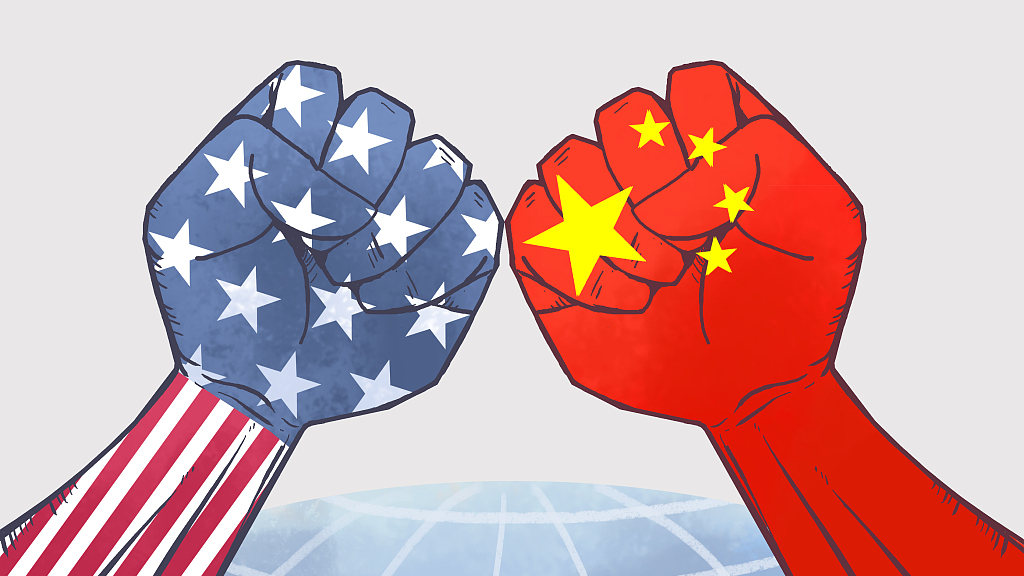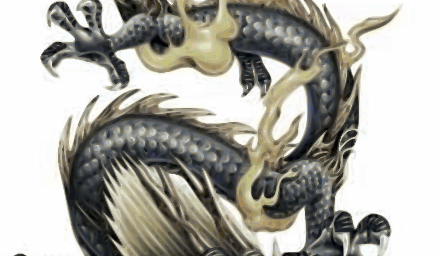Escalating the China Trade War
Biden is following Trump's lead but doing it more competently.

Bulwark editor Jonathan V. Last contends “Joe Biden Just Crushed China’s Semiconductor Industry.”
There was some big, important news on Friday and no one really noticed: The Biden administration hit China, hard, with a series of export controls that are going to hurt.
I noticed and suspect most OTB readers did, too. But I didn’t think all that much of it.
Here’s how the policy works: Making computer chips requires a lot of advanced equipment. Much of that advanced equipment is made by American companies. The new rules from the Biden administration make it so that any company, anywhere in the world, using certain advanced American equipment to make chips can’t sell those chips to Chinese-controlled companies.
Which means that, at the stroke of a pen, China is getting cut off from the kind of advanced chips it can’t manufacture on its own. Which will cripple both military progress and tech-sector progress, too.
I’m a little skeptical that China, with its enormous human capital and other resources, isn’t capable of figuring out how to make chips but I’m no expert. Then again, neither is Last.
He cites NYT international economics reporter Ana Swanson:
Technology experts said the rules appeared to impose the broadest export controls issued in a decade. While similar to the Trump administration’s crackdown on the telecom giant Huawei, the new rules are far wider in scope, affecting dozens of Chinese firms. And unlike the Trump administration’s approach — which was viewed as aggressive but scattershot — the rules appear to establish a more comprehensive policy that will stop cutting-edge exports to a range of Chinese technology companies and cut off China’s nascent ability to produce advanced chips itself.
That sounds pretty significant.
He also cites Ben Thompson, a self-employed tech writer who’s worked at some big tech companies, who observes:
First, in case there was any question, it is clear that China is being viewed as an adversary, and that that view is a bipartisan one. Any tech company with business in China would do well to note that any further investments are fraught with risk, and previous investments need to be diversified sooner rather than later.
Second is the point I started with: while Trump deserves credit for upsetting the apple cart in terms of conventional wisdom with regards to China relations, the Biden administration is correct to pursue those previous actions to their logical conclusion. . . .
[W]hat is significant about this move is not simply that it bans chips but it also bans equipment as well (and, given the restrictions it places on U.S.-persons, also bans the service of existing equipment). That certainly increases the motivation for China to build alternatives, but it is tough to get strong legs when you have to first figure out how to make weights (but the weights involve the most complex tools ever invented by humans).
The original is paywalled but, again, that’s interesting. (That China is viewed as an adversary is the cornerstone of all of our published strategy documents, so that’s rather a given.)
Last adds:
What Thompson is talking about with the “weights” here is the fact that this policy doesn’t just hurt China’s ability to get chips now—thus hurting its economy and military. It also hobbles China’s ability to build its own advanced semiconductor industry because now the Chinese have to reinvent every wheel in the process just to get to par as it exists in the West circa 2022.
It strikes me as a prudent step for all sorts of reasons, not least is Chinese propensity to steal our intellectual property. Still, I remain skeptical this will be a long-term impediment.






I wish I could justify the expense of a Bulwark+ subscription. JVL’s had several pieces up in the last few days that I would like to have read in their entirety, not just the teaser snippet!
Sometime ago, I read an article on Taiwan’s semi-conductor industry and how the most sophisticated chips rely on tech and machinery manufactured and licensed by a Belgium(?) company. With regard to Chinese threats v. Taiwan, with China possibly taking control of the chip industry, the article pointed out that the machinery’s manufacturer had the ability to shut the equipment remotely. IIRC correctly, while the physical equipment his cutting edge, the real value is the SW that is housed in Belgium.
As China becomes more adversarial, closing off their access to tech other than American will be key and fortunately that tech is produced by our allies. That said, this will slow China, but not stop it, as they do have the resources to develop their own. That will take time, perhaps decades.
I’m not convinced that FG deserves credit on this point. I find it hard to believe that his actions toward China were motivated by policy considerations as opposed to the need to find a “SQUIRREL!!!!” to point at in order to attract the attention of the mindless MAGAts away from other concerns. Strikes me as more of an “even a blind hog can find a truffle” than a “Trump deserves credit.” Then again, I’m uninclined to give credit to him for anything other than being a D-list grifter.
Silly Biden. This is not a tariff the Chinese will pay.
This is a speed bump, not a roadblock.
The Chinese use foreign machinery because it’s cheaper and easier. If it stops being so–or gets in their way–they’ll bring it internal. It may take a couple years to spool up, and the quality won’t be as great, but I can guarantee that they have all the info they need to make the fabrication machinery themselves.
And be careful of them hitting back. They control 80% of the rare earth mining that is essential for all the electronics our chips will be going into. If they decide to fight back, we’re screwed.
Hmm. Let’s try this.
Yes, but it isn’t easy.
@Mu Yixiao:
They will get there eventually but it’s a lot harder than it seems. They have poured billions into the effort over the past two decades and so far have only succeeded in building plants four or five generations out of date. It will be a hell of a lot longer than a couple of years
@MarkedMan:
Moore’s law is working against them. Mu’s right that in a few years they’ll be able to figure out what’s being done now. The problem is that in those few years, the people doing what’s being done now now will have also moved a couple years ahead, so they’ll still be several generations behind. Intel’s Tick-Tock model moves inexorably onward.
@Stormy Dragon:
Yes, but older tech can be good enough for some applications, even if it’s no longer cutting edge.
China’s been trying to develop a commercial aircraft business. Their first attempt, I forget the model number, was an inferior knockoff of the DC-9 that even Chinese airlines don’t want much.
Their current attempt is the COMAC* C919 is a narrow body similar to the B737 or A320. What I’ve read is that it’s heavier, so it should use up more fuel and/or have a shorter range. But it’s good enough, on paper at least, to serve the needs of many airlines for short and medium range flights.
Add the backlogs at Boeing and Airbus, and the ability of the Xi government to make local airlines take these planes, and you have a serious competitor to the duopoly in China.
Maybe outdated chips won’t allow China to export semiconductors, but they may be good enough for use in weapons systems they can use and sell abroad.
@Stormy Dragon:
Two points on that:
1) Moore’s law isn’t holding as true as it once did. Doubling is slowing down, for both technical and economic reasons (Nvidia’s CEO pronounced it “dead” a couple weeks ago).
2) China doesn’t need cutting-edge chip design to do what they want to do. Most of industry will continue on perfectly fine with current generation chips. (Ninja’d by Kathy)
@Mu Yixiao: I have great respect for the Chinese economy. They really are the world leader in many types of manufacturing. Despite that, I think chip manufacturing is more difficult then you imagine. There is a reason that Taiwan has captured 90+ percent of the sophisticated chip market. They work closely with their customers to jointly push their capabilities with every new product, and that requires a high level of sophistication on the customers’ part as well as a willingness on their part to be a partner in the changes necessary. There are collectively hundreds of thousands of man-years worth of engineering knowhow on both the manufacturers’ and the customers’ part that keeps everything running and improving. China doesn’t have any of those partnerships, and they are unlikely to develop them even internally. The crucial reason Taiwan has been able to partner with virtually every single high end designer is because they have an iron clad reputation for protecting their customers IP. China is the exact opposite. It has a culture of “what’s yours is mine – to use, to sell, to give away, as I see fit”. No one, not even Chinese entrepreneurs, would trust them with valuable IP.
@MarkedMan:
The way China’s heading, it would have nothing to do with trust or partnerships. Chips wouldn’t be sold, they’d be used internally. And any foreign machinery or IP that currently exists in China would remain there when the factories are nationalized.
I’m not saying China would be a great exporter of technology. I’m saying that they are capable of “doing well enough for what they need”. If North Korea can make ICBMs and nukes, China can be self-sufficient (in no small part due to how well they are at stealing stuff).
In the IC discussion, possibly worth noting that DOD doesn’t operate at the leading edge technology nodes. Under their trusted-foundry arrangement, there is one fab capable of 14nm parts. Most of the trusted vendors operate at much older technology levels, including some farther back than 100nm. DOD is only now starting to put together approaches that might let them acquire parts below 14nm. China uses lithography gear acquired overseas, but produces 14nm parts. Their homegrown lithography company started shipping 28nm gear this year.
Global supply chains make all of this really complicated. The leading edge lithography requires ultra-pure neon gas for its lasers. 90% of such neon was produced in Ukraine, and production there has stopped indefinitely. China is an alternate supplier of the gas for ASML, the Dutch company that builds the lithography gear the leading edge tech requires. ASML is currently negotiating for increased Chinese neon production. ASML has also been insisting that Chinese sanctions be limited to only the leading edge lithography equipment.
@Kathy: Technically speaking, consumers pay all tariffs.
@Just nutha: That assumes that manufacturers don’t raise their prices as high as the market will bear, I.e. that if tariffs were removed they would lower the sales price.